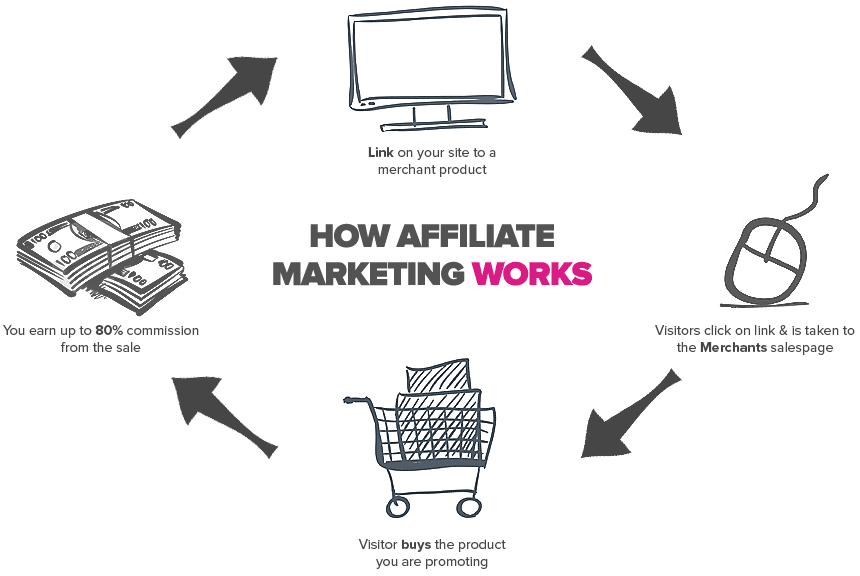In today’s competitive marketplace, affiliate marketing is a great way for those with products and services to find new customers. It’s also a great way for businesses, organizations and individuals to add an additional stream of income through promoting other businesses.
In addition to being effective, affiliate marketing is, at its core, delightfully simple. Here’s an example of how it works:
A business, let’s call it Anvil Corporation, has a new, state-of-the-art anvil. The Blacksmith’s society has an email newsletter that goes out to 2500 blacksmiths nationwide.
So they partner up. Blacksmith Society becomes an affiliate of Anvil Corp. and receives 20% commission on sales generated by promoting the new $50 anvil. The Blacksmith Society sends out email, letting their subscribers know about the new anvil and providing a link to a sales page at Anvil Corp.’s website. For each member of the Blacksmith Society who clicks through and makes a purchase, Anvil Corp pays $10 to the Blacksmith Society. That’s it!
There are, of course, numerous variations on this theme and varying levels of complexity. Companies can purchase high-tech programs that produce personalized, unique links for affiliates, track clicks and purchases, and even provide real-time online reports for affiliates on their sales. Some programs involve tracking cookies or other technology that “tag” a customer for that affiliate and produce ongoing income for additional, future purchases.
Does Affiliate Marketing Require Fancy Software or Paid Programs?
No…don’t get overwhelmed. If you don’t have access to this sort of technology, affiliate marketing can be simple as offering a code to use when customers make an order. It is important if you have a low-tech affiliate program to allow affiliates to offer a coupon or discount with their code so they can feel confident that customers will remember to provide it. Then you can keep track of affiliate sales on a simple spreadsheet or even a good old low-tech legal pad.
What’s great about affiliate marketing is being able to find partners that are already in contact with your target market and letting them do your work for you. And unlike traditional advertising, you only pay when you make a sale!
Before You Start Signing up Affiliates
• It’s helpful to write customizable sales copy or provide marketing materials for your affiliates to promote your business. The easier it is, the more likely they’ll be to actually send the email or mailer.
• Be sure you are working with reputable partners with legal, opt-in contact lists. If they are spamming with marketing for your business, it not only makes you look bad, but also may get you in real trouble.
• Have a minimum amount to cut an affiliate payment, say $50, to avoid needing to write numerous tiny checks each pay period. And set your pay schedules in advance – once a quarter usually works well.
• Speak to your accountant about paying (or receiving) affiliate income. Annual totals for successful affiliate partners may require tax filings (which means you need Tax IDs and other info from your affiliates). And for affiliates, such income does usually count at tax time.
Overall, affiliate programs provide a win-win-win proposition. Businesses make sales, affiliates earn income and their contacts and customers receive pre-screened offers from a source they trust (and sometimes get a discount, too!). If you’ve been looking to expand your customer base or diversify your income streams, affiliate marketing is a great place to start.

